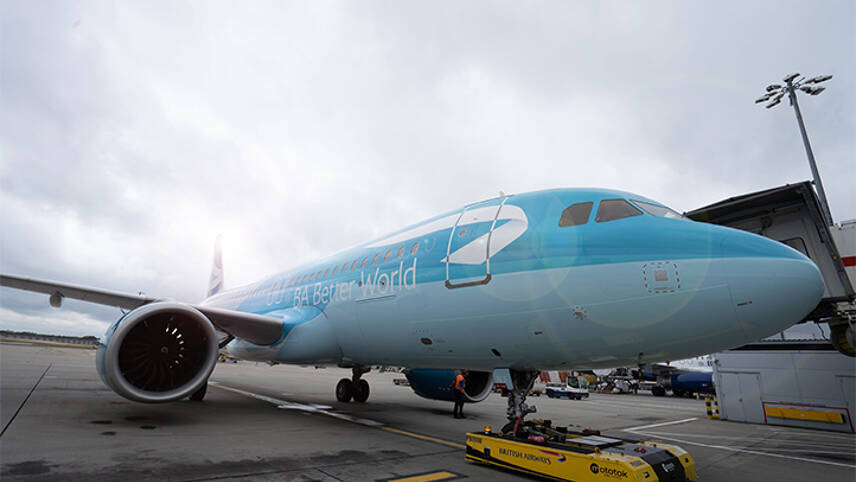Register for free and continue reading
Join our growing army of changemakers and get unlimited access to our premium content

Overall, Project Speedbird has the potential to reduce CO2 emissions by up to 770,000 tonnes a year
British Airways partnered with LanzaJet and Nova Pangaea Technologies to launch Project Speedbird in 2021. The project aims to develop SAFs in the UK for commercial use.
Project Speedbird was initially granted nearly £500,000 by the Department for Transport’s (DfT) Green Fuels, Green Skies competition to fund an initial feasibility study for the early-stage development of the project. Now, the company has applied for the Department’s Advanced Fuels Fund grant for additional funding, as part of the department’s Jet Zero strategy which includes implementing a SAF mandate to come into force in 2025. This will require at least 10% of UK jet fuel to be SAF by 2030.
The process will see agricultural and wood waste taken and converted into bioethanol and biochar. LanzaJet’s patented alcohol-to-jet (ATJ) technology will then convert it into SAFs.
The conversion will take place at a UK facility, which is planned to be built in North East England. Construction could begin as early as 2023 and SAFs are expected to be produced by 2026.
British Airways intends to offtake all SAF produced through Project Speedbird to help power its flights. British Airways claims the SAFs would reduce emissions on a net lifecycle basis by 230,000 tonnes a year – the equivalent emissions of approximately 26,000 domestic flights.
Overall, Project Speedbird has the potential to reduce CO2 emissions by up to 770,000 tonnes a year.
British Airways’ director of sustainability Carrie Harris said: “Project Speedbird is another great step towards our mission to reach net zero carbon emissions by 2050 or sooner and achieve our target of using SAF for 10% of our fuel by 2030. SAF is in high demand but in short supply across the globe and so it is essential that we scale up its production as quickly as possible. With further investment and continued government support, Speedbird will be a key and pioneering project in the production of SAF here in the UK.
“The biochar carbon removal opportunities are another important aspect of this impressive innovative project that can contribute to our net zero action. We are delighted to be a part of this important project, illustrating how we’re putting sustainability at the heart of our business with our BA Better World sustainability programme.”
Last year, British Airways confirmed a new multi-year partnership with Phillips 66 to procure sustainable aviation fuels (SAFs) from a refinery on the Humber industrial cluster.
British Airways procured SAFs from the Phillips 66 Humber Refinery to power a number of flights this year. The SAFs will be produced using waste feedstocks from the Refinery and will be supplied to British Airways via existing pipeline infrastructure that feeds directly into UK airports.
IAG, which owns airlines including British Airways and Aer Lingus, has pledged to power 10% of flights with SAF by 2030.
It has not clarified the percentage of SAF blend it will use; current restrictions cap biofuel blending at 50%. However, it has said it will purchase a million tonnes of SAF annually from 2030, in a move that will reduce annual emissions by two million tonnes. The business’s existing SAF suppliers include LanzaJet and Velocys.
The state of play for SAF in the UK is mixed. The technology has been supported by dozens of big businesses and with standalone funding from the Government.
Additionally, the Sustainable Aviation Buyers Alliance (SABA) recently launched for members.
The Alliance was launched in April 2021 by RMI and the Environmental Defence Fund, in the aim of bringing together the purchasing power of fuel buyers to stimulate the scaling of supply chains for alternative fuels and to encourage policy support.
Last year, SABA states, less than 0.1% of aviation fuel use globally was attributed to SAFs produced from renewable sources or waste feedstocks. The Alliance has claimed that its work could help overcome the barriers of “disaggregated, insufficient demand” and high fuel costs.


Please login or Register to leave a comment.